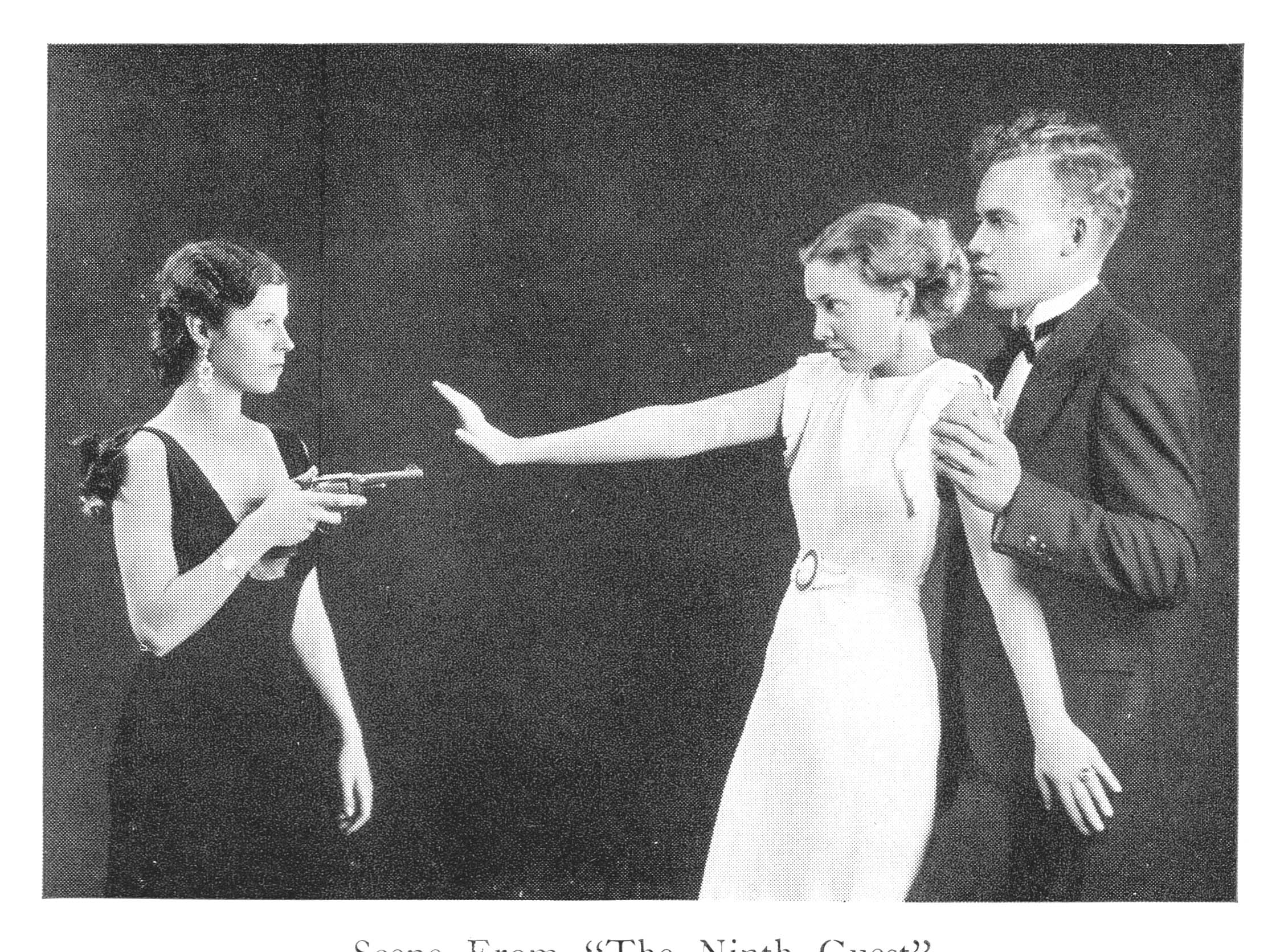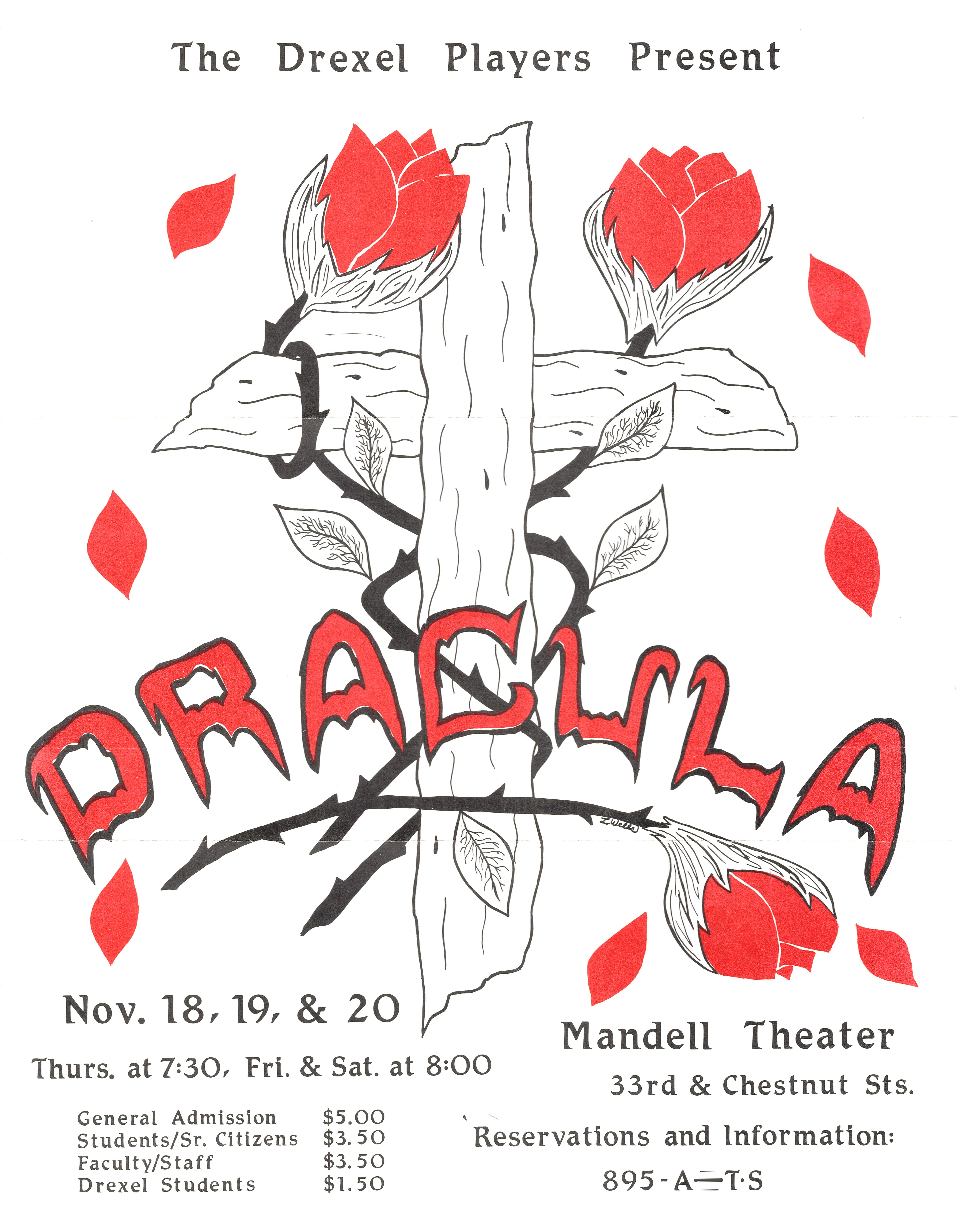Drexel Players Collection Sheds Light on History of Theater at Drexel from 1890s to 2000s
October 2, 2019
Before streaming video and torrents, before DVDs and VHS tapes, before video games and the web, student-run theatrical productions were a central part of campus culture throughout the United States. Drexel was no exception.
Drexel’s earliest student-run theater group, known as the Thespian Thirty, dates back to at least the 1894-1895 academic year. Through various name and organizational changes, and with a break only for World War I and the 1918 influenza epidemic, student-run theater was a regular highlight of campus activities at Drexel until the mid-1960s.  A promotional photo for The Ninth Guest, a mystery thriller staged at Drexel in1934.
A promotional photo for The Ninth Guest, a mystery thriller staged at Drexel in1934.
The Drexel University Archives recently processed a collection of materials related to the history of theater at Drexel, called "The Drexel Players Collection."
The collection includes material dating back to the 1890s and up to 2011, including manuscript materials from student-run theatrical groups like Alpha Psi Omega, as well as posters, postcards, programs and scrapbooks for specific productions by the Drexel Players, the primary student theatrical group from 1963 – 1964—a group that still exists today.
The collection also includes a scrapbook that documents the activities of the Rouge and Robe dramatic club from 1933 to 1949. The scrapbook’s wool cover is faded and moth-eaten, the pages brittle, and the binding damaged, but it contains clippings, tickets, photographs, and programs, some with handwritten corrections to the cast lists, as well as notes on the activities of the club. These ephemera enrich our understanding of Drexel’s campus culture in previous generations.
Dramatic activities were very popular in the 1930s, with large numbers of students involved in each production. A handwritten note in the scrapbook mentions a 1930 production of the operetta The Werewolf, which had a cast of seventy and presumably even more students involved as stage hands. The scrapbook also contains some insensitive racial depictions, often found in theater, which for the most part went unquestioned in the 1930s and 1940s.  A flier for a production of Dracula, staged in fall 1982.
A flier for a production of Dracula, staged in fall 1982.
“We have a responsibility to preserve this kind of material, because it’s part of our University’s history,” commented University Archivist Matthew Lyons. “At the same time, we want to alert patrons that they may find it offensive, and so they can choose whether to view it or not.”
Such historic documentation provides students and researchers with rich source materials to explore issues of timely social relevance. The University Archives continues to encourage use of its collections to inspire and prepare such civic discourse.
Anyone curious to examine the Rouge and Robe scrapbook or other material from the Drexel Players collection is welcome to make an appointment to visit the Drexel University Archives by emailing archives@drexel.edu.
To learn more about the contents of the Drexel Players collection, view the collection finding aid online.